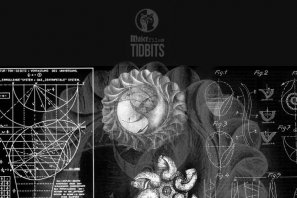Occult Ether Physics, written by William Lyne, dives deep into the world of suppressed science, unearthing the forgotten principles of ether and its application in propulsion systems. Lyne reveals how these lost concepts, particularly those originating from Nikola Tesla, were deliberately hidden to protect corporate and governmental interests. For readers of The Maier Files series, this book uncovers much of the...
In Prometheus and Atlas, Jason Reza Jorjani embarks on a bold philosophical journey, interweaving myth, science, and history to explore the profound impact of technological advancement and the paranormal on human existence. Published in 2016 by Arktos Media, the book offers a deep exploration of Promethean themes, drawing from ancient mythology to address the pressing challenges of our modern era. The...
In 1997, then-U.S. Secretary of Defense William S. Cohen delivered a keynote address at the Conference on Terrorism, Weapons of Mass Destruction, and U.S. Strategy. In this speech, Cohen unveiled a chilling reality of advanced weaponry and manipulation capabilities. He stated, “There are plenty of ingenious minds out there that are at work finding ways in which they can wreak terror upon other nations. It’s real, and that’s the reason why we have to intensify our efforts.” This revelation forms […]...
In the midst of modern concerns over the terms “cult” and “occult,” it’s essential to clarify that the latter simply denotes “secret” or “hidden.” Beyond religious connotations, any group employing concealed teachings limited to a select few falls under the category of a “cult.” What if an entire realm of physics has been deemed virtually “occult” and restricted from public knowledge...
Gravity …. I fell. An introduction by Richard Panek. I had been sitting in a chair for a quarter of an hour, killing time in a bookstore. I had selected from a nearby shelf a book that I thought might relate to the subject I was researching at the moment—I no longer recall what. I’d pushed my chair away from a...
What laws govern our universe? How shall we know them? How may this knowledge help us to comprehend the world and hence guide its actions to our advantage? Since the dawn of humanity, people have been deeply concerned by questions like these. At first, they had tried to make sense of those influences that do control the world by referring to the kind of understanding that was available from their own lives. They had imagined that whatever or whoever it […]...
David Bohm is one of the foremost scientific thinkers of today and one of the most distinguished theoretical physicists of his generation. His challenge to the conventional understanding of quantum theory has led scientists to reexamine what it is they are doing and to question the nature of their theories and their scientific methodology. Quantum Implications is a collection of original...
Nature’s Rhythmical Processes Nature is not served by rigid laws, but by rhythmical, reciprocal processes. Nature uses none of the preconditions of the chemist or the physicist for the purposes of evolution. Nature excludes all fire for purposes of growth on principle; therefore all contemporary machines are unnatural and constructed according to false premises. Nature avails herself of the biodynamic form...
Roger Penrose; Can fantasy have any genuine role to play in our basic physical understanding? Surely this is the very antithesis of what science is about, and should have no place in honest scientific discourse. However, it seems that this question cannot be dismissed as easily as might have been imagined. And there is much in the workings of nature that appears fantastical, according to the conclusions that rational scientific thought appear to have led us to when addressing sound […]...
Ether or AEther (from Greek and probably from I burn,) a material substance of a more subtle kind than visible bodies, supposed to exist in those parts of space which are apparently empty. So begins the article, ” Ether,” written for the ninth edition of the Encyclopedia Britannica, by James Clerk-Maxwell. The derivation of the word seems to indicate some connection...
Physical space may itself be curved, contain antimatter, house a sea of neutrinos, and be related to the invisible realm of the psyche. Nevertheless, physical space is also made up of something else. That something else has been called, for generations, the ether. With the discovery of holography and a new order to the universe, the conceptualization of empty space must...
What is the essential nature of energy? Where do we begin to search for the answer to this age-old question? Surprisingly, despite all scientific investigation, nobody seems to have come up with a definitive answer! All we know of are the ways in which energy manifests itself. We can see that energy is involved in flowing water. We can see that energy is associated with creating clouds. Energy is active in an engine combusting petrol or gasoline. But what is […]...













